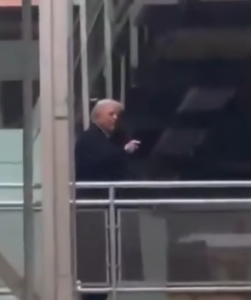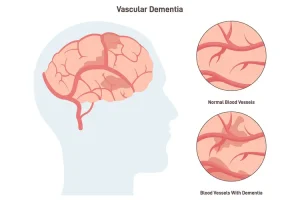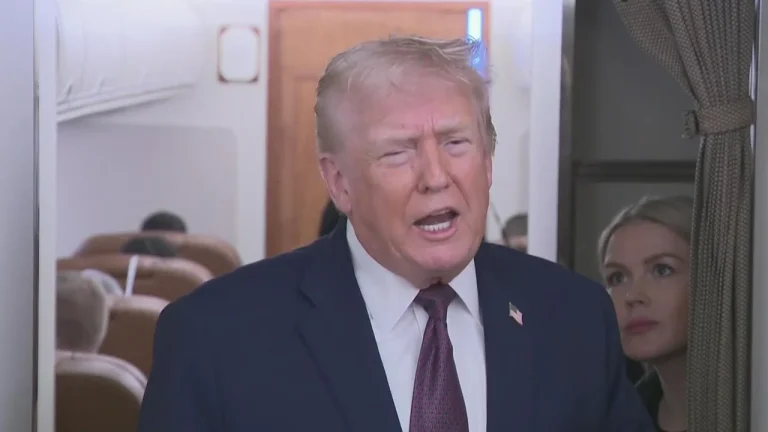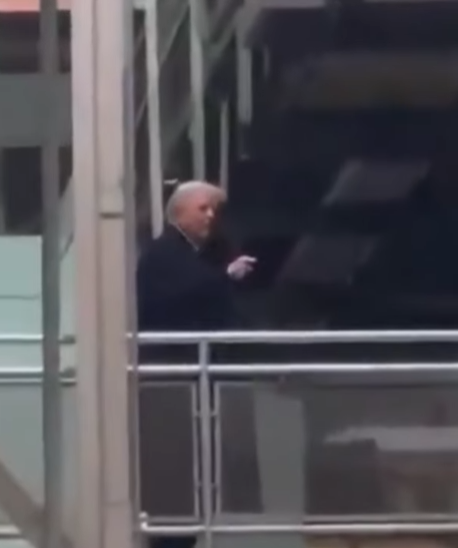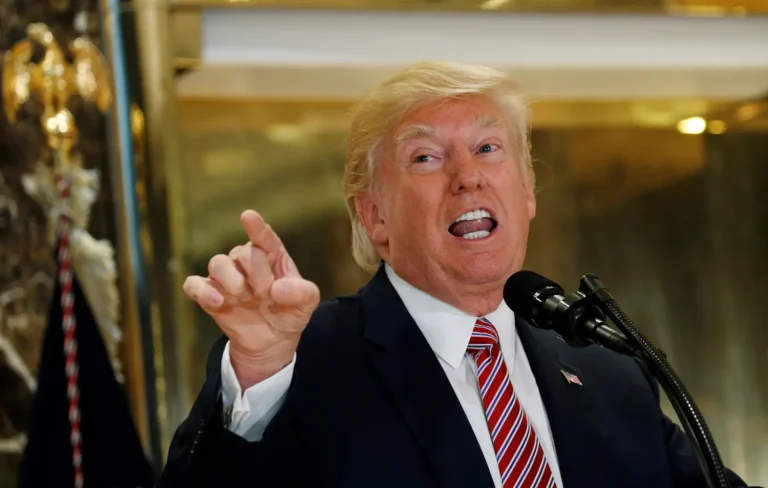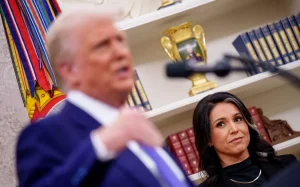In a dramatic series of events that unfolded this week, U.S. Attorney General Pam Bondi took decisive action that reshaped the leadership of one of the nation’s most closely watched federal districts. Her decision to remove Desiree Leigh Grace as interim U.S. Attorney for the District of New Jersey came only hours after a panel of federal judges voted to terminate the interim tenure of Alina Habba, triggering intense debate inside legal and political circles over executive authority and judicial oversight.
A Rapid Chain of Events
The sequence began Tuesday morning, when a three-judge panel in New Jersey voted not to extend Habba’s temporary appointment as interim U.S. Attorney. The judges—drawn from both Obama- and Biden-era appointments—announced that Habba’s 120-day term would end at midnight Friday and that First Assistant U.S. Attorney Desiree Leigh Grace would assume the role immediately upon expiration.
Within hours, Attorney General Bondi intervened from Washington, issuing an order that nullified the panel’s action and removed Grace from the post altogether. By Tuesday evening, the Justice Department confirmed that the U.S. Attorney’s Office for New Jersey would operate under acting supervision until further notice.
The abrupt reversal underscored a deepening institutional conflict between the Department of Justice and the federal judiciary—one that some observers say could redefine how temporary federal prosecutors are appointed and removed.
Who Is Alina Habba?
Alina Habba is a well-known attorney who has built a career handling complex federal litigation. Earlier this year, Bondi appointed her as interim U.S. Attorney for the District of New Jersey, placing her in charge of a wide range of federal prosecutions, from organized crime to political corruption.
Under federal statute, interim U.S. Attorneys serve for a maximum of 120 days unless formally nominated by the president and confirmed by the Senate. Habba’s term was nearing its statutory limit when the judicial panel moved to replace her—a step that, while permitted under federal law, is rarely exercised without coordination with the Justice Department.
Judicial Panel Moves to Replace Habba
The panel’s decision reflected growing unease within parts of the judiciary over Habba’s handling of politically sensitive cases. Most notably, she had recently overseen the indictment of Representative LaMonica McIver, a Democratic lawmaker from Newark, on charges of wire fraud and misuse of campaign funds. The case had drawn intense media scrutiny and pushback from party leadership, who accused the DOJ of weaponizing prosecutions for political ends.
Sources familiar with the judges’ deliberations said the vote to remove Habba was framed as an administrative necessity, but insiders acknowledged that the political fallout from the McIver indictment played a major role. With Habba’s term expiring, the judges opted to appoint her first assistant, Desiree Leigh Grace, in a bid to stabilize the office while avoiding further controversy.
Bondi’s Swift Response
Attorney General Bondi rejected that reasoning outright. In a statement issued late Tuesday, she praised Habba’s performance and denounced the judges’ action as an encroachment on executive authority.
“@USAttyHabba has been doing a great job in making New Jersey safe again,” Bondi said. “Politically motivated judges cannot dictate Justice Department leadership. We will not allow judicial activism to override the Constitution’s clear grant of appointment power under Article II.”
Bondi’s directive removed Grace from the interim position within hours of her appointment, effectively nullifying the judges’ order. The Justice Department confirmed that it would name a new acting official in the coming days and review the panel’s actions for possible procedural violations.
Political Pressure Behind the Scenes
The conflict did not arise in isolation. According to senior Justice Department officials, the decision by the New Jersey judicial panel followed what they described as a “coordinated campaign of political pressure” led by Democratic lawmakers. House Minority Leader Hakeem Jeffries was reportedly among those urging federal judges to reconsider Habba’s role following the McIver indictment.
The White House did not immediately comment on the dispute, but political analysts said the episode highlights the increasing politicization of federal law enforcement and the delicate balance between independent prosecution and executive oversight.
The Legal and Constitutional Questions
At the heart of the controversy lies a constitutional question: Who ultimately controls the appointment of interim U.S. Attorneys—the executive branch or the judiciary?
Under 28 U.S.C. § 546, the attorney general may appoint an interim U.S. Attorney for up to 120 days. If that period expires without a presidential nomination, the district court may then appoint someone to serve until a permanent successor is confirmed. Historically, however, coordination between the branches has prevented open confrontation. Bondi’s move to dismiss a court-appointed replacement marks a rare and potentially precedent-setting break from that tradition.
Legal scholars are divided. Some argue that the judiciary acted within its authority and that Bondi’s intervention violates statutory limits. Others counter that the courts overstepped by pre-emptively removing a Justice Department appointee before her term expired.
“The law was designed to ensure continuity, not confrontation,” said a constitutional law professor at Georgetown University. “This situation blurs the separation of powers in a way that could have lasting consequences.”
Fallout Within the Justice Department
Internally, the sudden turnover has left the New Jersey office in limbo. Senior prosecutors have been instructed to continue operations as usual, but staff expressed concern about the uncertainty surrounding leadership. Several cases—including ongoing investigations into political corruption and organized crime—remain active, though sources say routine operations have not been interrupted.
Within the DOJ, Bondi’s decisive response has been viewed as a message to other districts: that the attorney general will not tolerate judicial intervention in personnel matters. “The department speaks with one voice,” a senior official said. “We respect the courts, but prosecutorial authority belongs to the executive branch.”
Broader Political Implications
The timing of the confrontation has amplified its political significance. With the administration already facing pressure over judicial nominations and prosecutorial independence, the New Jersey episode has become a flashpoint in the national conversation about the separation of powers.
Supporters of Bondi argue that she is defending constitutional boundaries against an increasingly politicized judiciary. Critics contend that her actions erode institutional checks and could politicize the Justice Department itself.
Either way, the stakes are high. U.S. Attorneys are not merely administrators; they represent the federal government in nearly every criminal and civil proceeding within their districts. Any disruption in leadership can have cascading effects on federal law enforcement priorities.
The Vacant Post and the Road Ahead
As of Wednesday morning, the Justice Department had yet to name a new interim or acting U.S. Attorney for New Jersey. Several candidates within the department are reportedly under consideration, but no timeline has been announced. Until a replacement is appointed, senior staff in the district will continue reporting directly to the deputy attorney general.
Observers say the outcome of this dispute could determine whether future interim appointments remain largely administrative or become political battlegrounds. “This is about more than one district,” noted a former DOJ official. “It’s about defining who gets to decide when the courts and the executive branch disagree.”
A Growing Pattern of Institutional Tension
The clash in New Jersey is the latest in a series of jurisdictional skirmishes that have tested the relationship between the Justice Department and the federal judiciary. Similar disputes have emerged over judicial oversight of prosecutorial discretion, particularly in cases involving politically exposed figures.
In recent months, Bondi has emphasized restoring what she calls “executive clarity” within the Justice Department, reaffirming that U.S. Attorneys answer to the attorney general and the president—not to judicial committees. The New Jersey case now serves as the most visible test of that policy.
Conclusion: A Defining Moment for DOJ Authority
Pam Bondi’s removal of Desiree Leigh Grace following the judicial panel’s decision marks a pivotal moment in the evolving relationship between the executive and judicial branches. The confrontation underscores the enduring tension between independence and accountability in the federal justice system.
As the Department of Justice moves to stabilize leadership in New Jersey, the broader implications are clear: this episode will shape how future administrations interpret the boundaries of their appointment powers and how much influence the judiciary can exert in executive affairs.
For now, the district remains without a confirmed head, awaiting a new appointment amid a national debate that extends far beyond the borders of New Jersey—touching on the core of how justice, law, and politics intersect in the American system.

Sarah Mitchell is a bestselling novelist recognized for her insightful and emotionally resonant stories that explore the complexities of human relationships. Originally from Denver, Colorado, Sarah grew up in a family of teachers who nurtured her curiosity and love for storytelling. She studied psychology at Stanford University, where she became fascinated by the intricacies of human behavior—an interest that would later shape her writing career. Sarah’s novels are praised for their nuanced characters, intricate plots, and ability to capture the subtle tensions that define love, friendship, and family ties. Her breakthrough novel, The Spaces Between Us, became an instant bestseller, lauded for its honest portrayal of strained family relationships and the fragile bonds that hold people together. Since then, she has published several works that continue to captivate audiences around the world. Outside of her writing career, Sarah is passionate about mental health advocacy and often partners with organizations to promote awareness and support for those struggling with emotional well-being. Her personal life is quieter—she enjoys hiking in the Colorado mountains, practicing yoga, and spending time with close friends. With each new book, Sarah Mitchell cements her reputation as a writer who illuminates the beauty and struggles of human connection.

